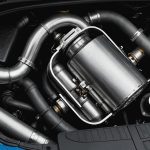As we gear up for winter driving, ensuring the seamless operation of your vehicle’s adaptive cruise control (ACC) systems is vital. When snow and ice accumulate on roads, traffic flow becomes unpredictable, making advanced driver-assistance systems (ADAS) crucial for safe travel. In this article, we will explore how you can maintain optimal functionality of your adaptive cruise control sensors in challenging winter weather conditions.
Understanding Adaptive Cruise Control Systems
Adaptive cruise control (ACC) systems represent a significant leap in automotive technology, offering enhanced safety and convenience. Unlike traditional cruise control, ACC systems adjust your vehicle’s speed to maintain a safe distance from the car ahead, automatically slowing down or speeding up as needed. This feature is particularly beneficial during winter driving, where sudden stops and unpredictable traffic flow are common.
This might interest you : How should you prepare and maintain a vehicle’s exhaust gas recirculation (EGR) system for optimal performance?
However, the proper operation of these systems relies heavily on the integrity of their sensors. Snow, ice, and other winter elements can obstruct these sensors, compromising their function. Therefore, understanding how these systems work and how to keep them in top condition during the colder months is crucial for your safety and the safety of others on the road.
Preparing Your Vehicle for Winter Weather
Before the winter weather sets in, it’s essential to prepare your vehicle to ensure the adaptive cruise control system functions correctly. A well-prepared vehicle can navigate through snow and ice more efficiently and maintain the accuracy of its control systems. Here are some steps to get you started:
Additional reading : What are the key considerations for ensuring the safety of a vehicle equipped with a panoramic sunroof?
-
Clean Your Sensors Regularly: Sensors are the eyes and ears of your ACC systems. Snow, ice, and road grime can obstruct these sensors, rendering them ineffective. Regularly clean the sensor areas, particularly after driving in heavy snow or slush. Use a soft cloth to avoid scratching the sensors.
-
Check Sensor Alignment: Misaligned sensors can send inaccurate data to your vehicle’s ACC systems. Ensure they are properly aligned and, if necessary, get them adjusted by a professional. This is particularly important if your vehicle has experienced a recent impact or if you notice irregularities in the system’s operation.
-
Monitor Tire Pressure and Tread: Proper tire pressure and good tread depth are critical for maintaining traction on snowy and icy roads. This, in turn, helps the ACC system operate effectively. Low tire pressure can affect the sensor readings and the overall performance of the control systems.
-
Use Winter-Grade Fluids: Replace your windshield washer fluid with a winter-grade variant that won’t freeze in low temperatures. This helps keep your windshield clean, ensuring the sensors have a clear view of the road.
-
Check Battery Health: Cold weather can reduce battery efficiency, which may affect the performance of your vehicle’s electrical systems, including the ACC. Make sure your battery is in good condition and replace it if it shows signs of wear.
By taking these preparatory steps, you enhance the likelihood of your adaptive cruise control system operating correctly throughout the winter.
Daily Maintenance and Vigilance
Ensuring the proper operation of your adaptive cruise control sensors during winter is not a one-time task. It requires daily maintenance and vigilance. Here’s how you can stay on top of it:
-
Inspect Your Vehicle Daily: Before starting your journey, perform a quick inspection of your vehicle. Check the sensor areas for any snow or ice buildup and clear it away. Look for any signs of damage or misalignment.
-
Stay Informed on Weather Conditions: Knowledge of the current and upcoming weather conditions can help you anticipate potential issues with your ACC system. If heavy snow or freezing rain is expected, plan for extra time to prepare your vehicle and drive more cautiously.
-
Adjust Driving Habits: While ACC systems are designed to enhance safety, they are not a replacement for attentive driving. In winter weather, reduce your speed, increase your following distance, and be prepared to take manual control if the system struggles to interpret the road conditions correctly.
-
Engage Manual Controls When Necessary: Adaptive cruise control is a helpful tool, but there are times when manual control is safer. In severe weather conditions, consider turning off the ACC and relying on your driving skills.
-
Use Defrost and Heating Systems: Utilize your vehicle’s defrost and heating systems to keep the windshield and other sensor areas clear. This helps prevent snow and ice buildup and ensures the sensors can function properly.
-
Check for Software Updates: Manufacturers often release software updates for ACC systems that can improve their performance and reliability. Regularly check for updates and install them as needed.
By incorporating these daily maintenance routines and staying vigilant, you ensure that your adaptive cruise control sensors remain functional, even in the harshest winter conditions.
Community Insights and Real-World Experiences
Learning from the experiences of other drivers can provide valuable insights into maintaining your adaptive cruise control systems during winter. AudiWorld member forums and automotive communities are excellent resources for practical advice and real-world experiences. Here’s what community members have to say:
-
Quote Originally Posted by an AudiWorld Member: “Last winter, I had issues with my ACC system due to snow buildup on the front sensors. Now, I always carry a small brush in my car to clear the sensors before each drive. It’s made a huge difference in performance.”
-
Likes Received for Practical Tips: Posts that offer practical, actionable tips often receive likes and positive feedback from the community. One popular tip is to apply a thin layer of petroleum jelly around the sensor areas to prevent ice from sticking.
-
Posts Quote on Effective Products: Some members recommend specific products that have helped them maintain their ACC systems in winter. For example, a member join date of April 2021 mentioned using a de-icing spray on the sensors, which received likes for its effectiveness.
-
Autonomous Vehicles and ACC Systems: Discussion forums often delve into the broader implications of ACC in autonomous vehicles. Ensuring proper sensor operation is even more critical as vehicles move towards greater autonomy.
-
Winter Driving Adventures: Members frequently share their winter driving adventures, discussing how they’ve managed to keep their ACC systems operational in various weather conditions. These stories not only provide practical lessons but also highlight the importance of proactive maintenance.
By engaging with these communities, you can gain a wealth of knowledge and tips that can help you keep your adaptive cruise control systems functioning optimally during winter.
Professional Maintenance and Service
While regular maintenance and community insights are invaluable, professional service is sometimes necessary to ensure the optimal performance of your adaptive cruise control systems. Here’s when you should seek professional help:
-
Persistent Issues: If you encounter persistent issues with your ACC system, such as frequent error messages or inconsistent performance, it’s time to consult a professional. They can perform a thorough diagnostic check to identify and fix any underlying problems.
-
Sensor Calibration and Alignment: Professional technicians have the tools and expertise to calibrate and align your sensors accurately. This is particularly important after any impact or if you suspect misalignment.
-
Software Updates and Upgrades: While you can perform some software updates yourself, certain upgrades may require professional installation. Technicians can ensure that your ACC system is running the latest software for optimal performance.
-
Comprehensive Winter Check-Up: Before winter sets in, consider getting a comprehensive check-up from a professional service provider. They can inspect your vehicle’s ACC systems, battery, tires, and other critical components to ensure they are in top condition for winter driving.
-
Specialized Equipment and Techniques: Professionals have access to specialized equipment and techniques that can address issues beyond the scope of regular maintenance. For example, they can use advanced diagnostic tools to pinpoint sensor malfunctions or clean hard-to-reach areas.
Relying on professional maintenance ensures that your adaptive cruise control systems receive the attention and care they need to function correctly in winter conditions.
To ensure the proper operation of adaptive cruise control sensors during winter conditions, you must adopt a proactive and comprehensive approach. From understanding how your ACC system works and preparing your vehicle for winter, to daily maintenance, community insights, and professional service, each step plays a critical role in maintaining the functionality of your sensors.
Effective winter driving with adaptive cruise control systems requires diligence and attention to detail. By following the guidelines outlined in this article, you can navigate the challenges of snow and ice, maintain smooth traffic flow, and enhance your overall driving safety. As we brace for the winter months ahead, let’s ensure our vehicles are equipped and ready to tackle the elements, keeping ourselves and others safe on the road.
















